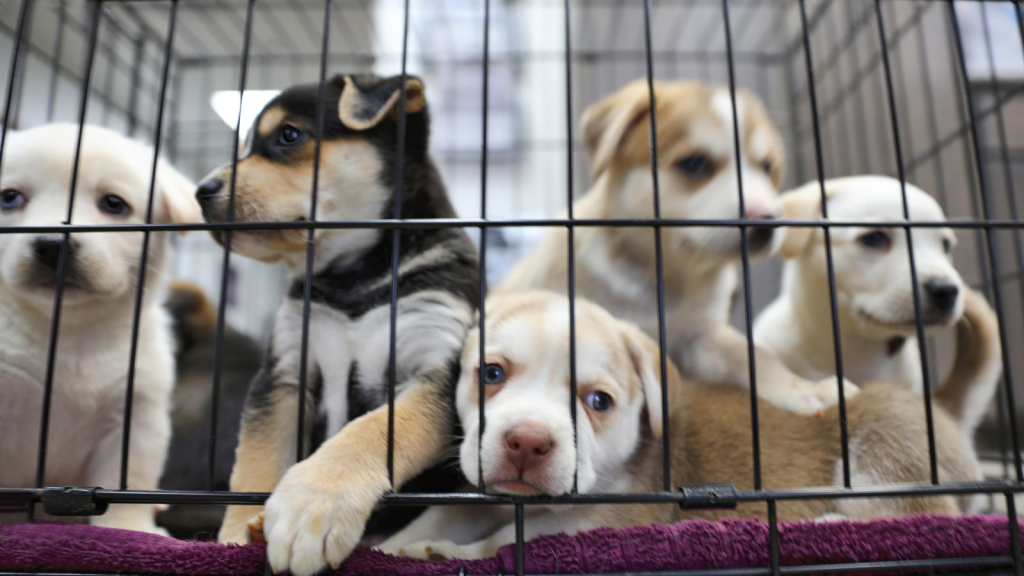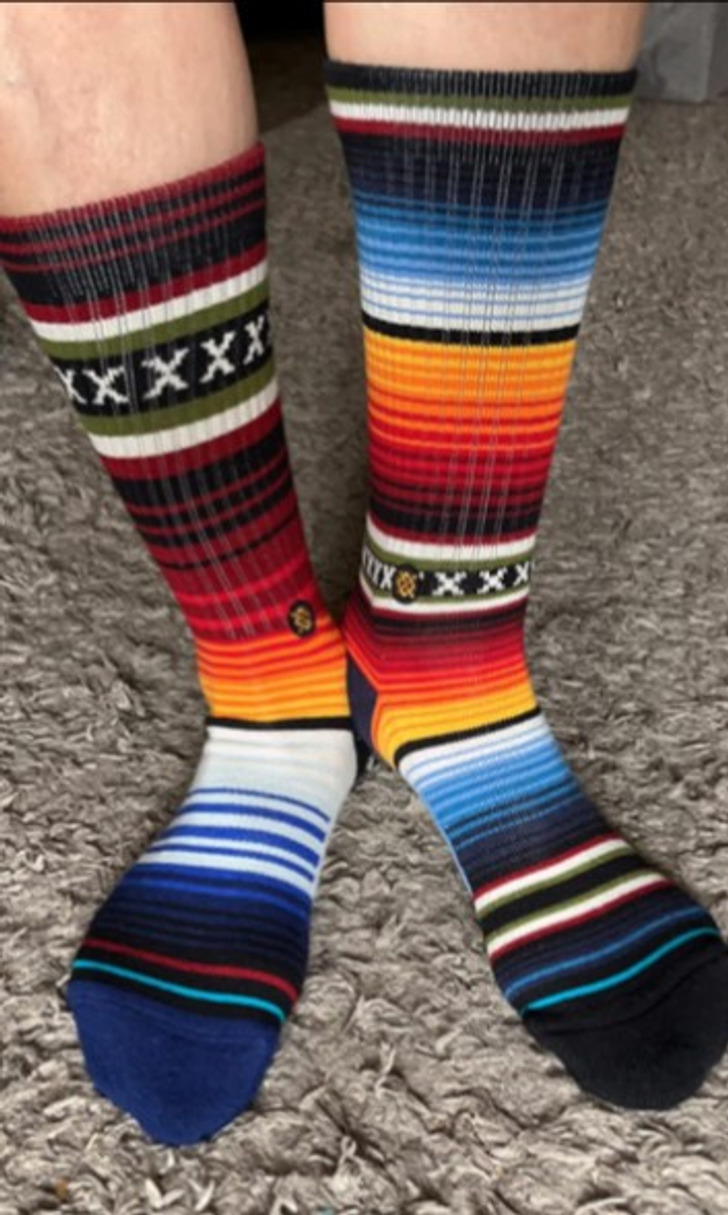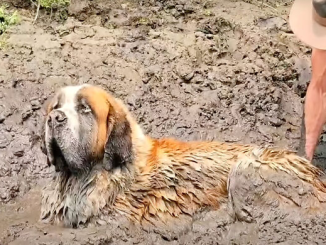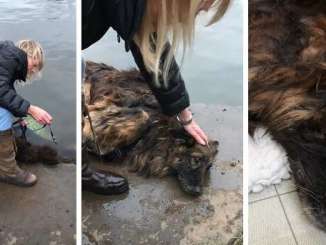A council in Australia killed the impounded animals to prevent volunteers at an animal shelter from travelling to pick them up and potentially spreading the virus.

Fifteen rescue dogs, including 10 puppies, have been shot dead by a rural Australian council under its interpretation of coronavirus restrictions.
Bourke Shire Council in New South Wales destroyed the canines, which had been at its pound, to prevent volunteers at an animal shelter from travelling to pick them up and potentially spreading the virus.
“The council decided to take this course of action to protect its employees and community, including vulnerable Aboriginal populations, from the risk of COVID-19 transmission,” the Office of Local Government, a government watchdog, told The Sydney Morning Herald.

The spokesman said officials were investigating whether any animal cruelty laws had been broken.
Five of the dogs had been housed at the pound since early August and one of the dogs then had 10 pups.
The council said staff became concerned for the welfare of the animals due to overcrowding at the pound and two of the dogs attacking one of the others.
A source said the shelter volunteers were distressed and already had COVID-safe measures in place to handle the dogs.
And comedian Ricky Gervais has expressed his disapproval of the killings on social media.
Bourke Shire Council told ABC News the dogs were euthanised because the rescue organisation was from another local government area and they had concerns about people from other communities entering Bourke.

All of regional New South Wales has “stay-at-home” orders in place due to COVID-19.
The council said it had contacted its usual dog rehomer, who is based in the same area, but they were unable to come to Bourke.
The shelter that was supposed to receive the dogs declined to comment.
Animal Liberation regional campaign manager Lisa Ryan has called for an urgent investigation.
“We are deeply distressed and completely appalled by this callous dog shooting and we totally reject [the] council’s unacceptable justifications that this killing was apparently undertaken as part of a COVID-safe plan,” she said.
Australia has recently seen a surge in COVID-19 cases, forcing the country’s largest city, Sydney, to extend its lockdown through September and impose tougher restrictions, such as a curfew and a mask mandate outdoors.
Staff are allowed to work at animal shelters even when lockdown measures are in place, according to the Office of Local Government spokesman.
“Councils are also encouraged to continue to work with re-homing organisations and volunteers to care for animals, where that can be undertaken consistent with NSW Health advice,” he added.
14 Beloved Celebrity’s Fashion Items That You Can Find on Amazon
Let’s face it: how many times have you bought something just because someone you adore wore it? Thankfully, not everything celebrities own is super expensive and some items are affordable for most of us to purchase. Whether formal or casual, these 14 products will make you fall in love.
1. Lele Sadoughi’s classic headband was proudly worn by Drew Barrymore, Hilary Duff, and Naomi Campbell. It is made from canvas and features a lovely knot at the top. It comes in black and is knitted.

Promising review:
- I noticed a friend wearing one of these cute headbands. We got into a discussion how I can never wear headband because the pressure they put behind my ears and cause headaches. I owe it to her to introducing me to this brand of headband. It is so comfortable and so cute on. I recommend if you have had issues like me in the past. @Mary Payton Noah
2. Superga trainers that are longtime favorites Catherine, Princess of Wales, Jessica Alba, and Jennifer Aniston. They are made from canvas and come in a variety of colors. They last in time and can be washed in the machine.

Promising review:
- I am a woman, U.S. size 8 in shoes and I purchased my trainers in a unisex 7 (for extra space since I have a wide foot). It fits perfectly. The only downside is that the back of my ankles rub against the back of my trainers, which made the back of my ankles a bit rough on the skin. Other than that, they are absolutely comfortable.
Although, one last thing is to purchase a pair of shoelaces that are long enough for the trainers because my shoelaces didn’t fully lace up. Overall, an excellent pair of shoes that were also worn by both Princess Katherine of Wales and her younger sister Pippa. @Kate
3. Khloé Kardashian’s favorite water bottle with inspirational quotes and time markers. It also features a straw and removable strap. It reminds you to stay hydrated every single day. It is made from food-grade, eco-friendly, reusable Tritan plastic.

Promising review:
- This jug is pretty awesome, definitely a lot bigger in person than I would’ve expected, but I love it and use it every day! I will say that cleaning it is kind of a pain since the strap on it isn’t easily removable. You either have to pry it off or clean the bottle with it on.
I got this as a Christmas present to myself and don’t even use it everyday due to the fact that if I don’t make sure the seal is in right, it leaks all over the place and the clasp that hold the bottle closed is broken as of this morning. I expected a just a little more out of the durability as it just broke on its own, wasn’t dropped or anything. @Ashton
4. Stance socks we’ve seen people like Rihanna, Beyoncé, and Hailey Baldwin wearing. Their seamless toe closure gives your feet less friction and more protection. They are suitable for both women and men in different styles and color combinations.

Promising review:
- Socks are well-made and fit well. I think it’s cool that both feet are slightly different designs, I actually get compliments when I wear these. I would have never thought I would get compliments on socks, oh well, who says socks have to be boring? My only problem is I can’t find other Stance socks with similar designs. Very good price, too. @Shale
5. Levi’s 501-type jeans celebrities like Gigi Hadid and Victoria Beckham wear. They are soft, lightweight, and accentuate your legs. They are light blue and are ideal for daily use. It’s best to wash them in cold water and without any bleach.

Promising review:
- I wanted to try high-waisted wide leg jeans for a long while, but couldn’t find a style I really liked… until now. I normally only wear stretchy slim jeans, but lost some weight and wanted to get a better fit. These are great, perfect sizing, perfect length, and not too much stretch. Finally, pants that don’t fall down to my hips. Great color and very comfortable. @Carol
6. Telfar shopping bag that is Oprah Winfrey’s personal pick. It comes in color purple and features a double strap. Made of faux leather, it has a main compartment with magnetic snap closure and an internal zipper pocket.

Promising review:
- I’ve wanted a Teflar bag for years and I must say I am not disappointed. The small bags are cute for date night or running errands. The medium can totally be a carry on for travel, a bag for a business lady, a bag for a mommy that has to take kids to the stores with her for or a cute date night! I’m a proud owner of 8 Teflar bags now. @Aisha Bennett
7. Apsvo chunky gold or silver earrings proudly worn by Kendall Jenner and Hailey Bieber. They are ideal for sensitive ears and are hypoallergenic. They are made of gold-plated copper and do not flake off and lose color.

Promising review:
- I am so pleased with this purchase. These earrings are such a nice size. Not too little, not too big.
A bright, beautiful gold. And they are actually heavy duty, I was surprised they felt as good of quality as they were. Highly recommended! @Angela Frank
8. Yeti portable cooler that is Matt Damon’s favorite. It offers superior cold-holding, with a capacity of up to 12 cans plus ice. Its high-density fabric withstands punctures and UV rays. Its shell is waterproof and holds its own when faced with the hazards of the wild.

Promising review:
- This thing is built like a real tank. The zipper is mega strong and even comes with a tube of chap stick type lubricant for it. Still extremely pricey, even for such a high quality product, but it should last a VERY long time and the cans or ice remain COLD, for well over a WEEK! @Don Killough
9. Thick high-waisted yoga pants similar to those Jennifer Lopez, Selena Gomez, and Jennifer Lawrence donned. They come in a wide variety of colors and designs. They provide tummy control and feature 2 pockets. They are very comfortable and feel natural on the skin.

Promising review:
- I’m always on the lookout for workout leggings that are both comfortable and functional, and The Gym People Thick High Waist Yoga Pants with Pockets definitely deliver. The first thing I noticed about these leggings was the quality of the material. They’re thick and well-made, and they feel great against the skin.
These leggings are also very comfortable to wear. The high waistband provides a flattering fit and good tummy control, and the fabric is soft and stretchy. I also love that they have pockets on both sides, which is perfect for storing my phone or keys when I’m working out. @Susan C — California
10. Marc Jacobs’ tote bag Kim Kardashian and SZA have worn for the brand’s campaign. It comes in various colors and features a zip and a long strap to put around your shoulders. This is a small size and can fit most of your necessities.

Promising review:
- Cute bag but nothing special. I bought an insert to help with organization, but it really helped hold its form and sit straight. The main shoulder strap is the only thing on the bag that feels «nice». I’d even consider buying another strap to swap out to change it up in the future.
My calendar does fit, but just barely. Your iPad will fit, but it’s going to cut it very close. Now I’m wondering how the large compares. @Reed
11. Birkenstock sandals our favorite celebrities have worn, including Reese Witherspoon, Margot Robbie, and Gwyneth Paltrow. They are made from oiled leather. They are quite wide but can fit any feet thanks to the adjustable straps.

Promising review:
- As long as you know your correct size, everything will be fine. Both my son and I wear a size 39. His are a men’s 39 and mine are a women’s 39. I wear a true 8.5, and I believe my son wears a men’s 8.5 as well. I have worn Birkenstocks since I was a kid in high school, and they most definitely don’t disappoint.
Great if you have foot problems (arch issues, plantar fasciitis, heel spurs). The only shoe I can wear while being on my feet all day long and not be in pain when I get home. I believe the Birks in question are the ones I bought for my son. He LOVES them.
They used to be known as «hippie» shoes, but they have made a huge comeback and are considered quite the style statement for men and women. Considered «cool shoes» if worn by a high schooler. @fivegreatkiddos
12. Biore pore strips that are Rihanna’s makeup artist’s favorite tool to clear skin. They unclog pores from dirt and residue in just 10 minutes. With continual use, you can help reduce the appearance of blackheads and see a visible reduction in the size of your pores.

Promising review:
- After trying out multiple similar products, this one seems to work the best! It is super easy to put on (tip: on wet skin) and every time I used it, I could see white sebum dots once I removed it. The only problem I had was bits of mask remaining glued to my nose after I took it off. However, it only happened every couple of times and is super easy to wash off, so I don’t mind it too much. @Filip
13. Unisex Crocs clogs, celebrities like Justin Bieber, Pharrell, and Bad Bunny often wear. They are very easy to clean using water and soap. The ventilation ports add breathability and help shed water and debris quickly.

Promising review:
- The crocs fit as expected if you order down. I wear 6 1/2 and ordered the 6. Perfect. I also have wide feet, and they aren’t too wide. They are a perfect fit.
There isn’t any rubbing or breaking in period. I decorated them with jewels. I’m 61 years old and I sport these well. Money well spent. Again, the color is beautiful. @cici
14. Kendra Scott Courtney paperclip necklace Reese Witherspoon loves. It is ideal for layering and complements both delicate necklaces and larger statement pieces. To protect the plating, remove your jewelry prior to contact with water.

Promising review:
- I enjoy wearing this necklace alone or as part of a layered look with many necklaces I already own from my Kendra Scott collection. It is great quality and quite dainty and not heavy at all. @Toothdrmom3
Making online purchases can be super easy but also quite challenging. That’s why many people rely on good reviews to decide whether they’ll buy something or not. So, if this is your criteria as well, you may want to check out these amazing products.
Bright Side gets commissions for purchases made through the links in this post. Reviews may have been edited for length and clarity.
Preview photo credit RW/Associated Press/East News, #AngelaCirca83 / Amazon



Leave a Reply